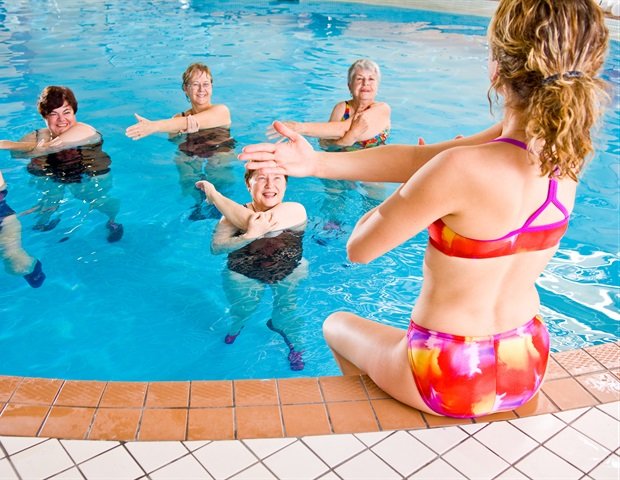A new study finds that physical activity and cognitive training can improve life satisfaction and mood in adults with Down syndrome.
Published in International Journal of Environmental Research and Public HealthThe Mindsets study is the first to investigate the benefits of prescribed physical and cognitive exercise over a period of time in a group of adults with Down syndrome.
The study involved 83 participants aged between 18 and 48 years who were recruited following an international campaign by the Canadian Down Syndrome Society.
The study, led by Dr Dan Gordon and Vivienne Merzbach of Anglia Ruskin University (ARU) in Cambridge, UK, involved volunteers from countries on five continents being assigned to one of four groups over a period of eight weeks.
Like the control group, participants were included in a light exercise program that included 30 minutes of walking three times a week, as well as taking part in activities provided by BrainHQ aimed at improving mental and executive function.
Overall, the study found that cognitive and physical exercise may provide a framework for enhancing life satisfaction, self-efficacy, and mood, leading to an overall improvement in quality of life.
Profile of Mood States (POMS) scores, assessed using a 5-point scale across 65 categories, showed significant improvements across the group over the 8-week period. Participants reported feeling significantly less tense from pre- to post-study and anger scores were significantly reduced. Fatigue scores were also significantly reduced and confusion scores improved.
The Generalized Self-Efficacy Scale (GSE), a measure of an individual’s belief in their own capabilities, showed improvements across the group. Further analysis showed that participants in the physical exercise only group had significantly higher self-efficacy scores than participants in the control group who did neither physical nor cognitive activity.
Over the course of the study, Satisfaction with Life Scale (SWLS) scores increased overall across groups, but there were no statistically significant changes across the sample or within any of the groups.
This is the first study of its kind and it finds that a prescribed training period involving cognitive and physical exercise could improve the quality of life and mood of a community of adults with Down’s syndrome.
These findings are important and provide further evidence that activities such as those used in this trial may not only improve biological and cognitive health, but also enhance quality of life and improve self-efficacy for adults with Down syndrome.
If future longitudinal studies demonstrate that being more physically active and cognitively stimulating promotes self-esteem and social integration, the potential benefits to the Down’s syndrome community would be enormous.”
Dr Dan Gordon, Associate Professor of Cardiopulmonary Exercise Physiology at Anglia Ruskin University and senior author of the study
This new open access study, available at https://www.mdpi.com/1660-4601/21/5/610 , builds on previous research from the Mindsets study, which found that walking exercise can improve information processing and attention in just eight weeks.
sauce:
Journal References:
Merzbach, V. etc (2024) The effects of prescribed physical and cognitive exercise on life satisfaction, self-efficacy, and mood states in adults with Down syndrome: The MinDSets study. International Journal of Environmental Research and Public Health. doi.org/10.3390/ijerph21050610.


